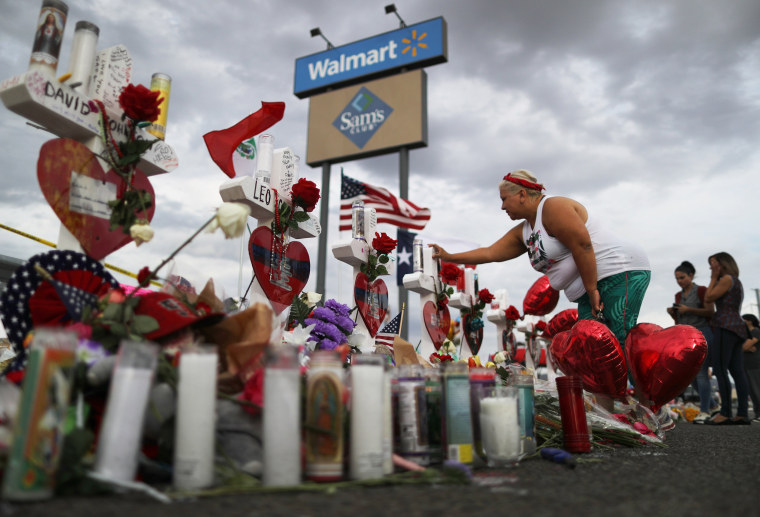Alejandro Hope, a security analyst for Mexican newspaper El Universal, has covered gun violence in the United States and Mexico. But the events over the weekend in El Paso stand out.
“This wasn’t like any other mass shooting,” Hope said. “This was an attack directed against the Mexican population.”
Like their American counterparts, journalists for international outlets have grown accustomed to covering mass shootings. But many reporters who spoke to NBC News say it can be challenging to communicate the situations to their audiences, who have trouble understanding gun culture, politics and extremism in the U.S.
The international journalists also pointed to what they see as a reluctance from U.S. journalists to accurately discuss the president’s rhetoric and its connection to violent acts.
Hope said that the shooting in El Paso has particularly resonated in Mexico, leading to the question: “To what measure has this been detonated by the rhetoric of President [Donald] Trump?”
The U.S. suffers far more mass shootings than any other country in the world. Other countries that have endured mass shooting events have moved quickly to amend gun laws, with the most recent example out of New Zealand. That nation in April enacted gun control measures just weeks after an attack on two mosques in the city of Christchurch.
“People don’t understand this. I’ve been living in the United States for 17 years and the number of massacres that I have to cover has been endless,” said Pablo Pardo, the U.S. correspondent for Spain’s second-largest newspaper, El Mundo. “To put it bluntly, to be perfectly honest, what people think is that Americans are crazy.”
Pardo notes that stories about American gun violence and the National Rifle Association regularly attract some of the highest readership for his paper’s website. He has covered mass shootings before, of course, but notes such occurrences are now so common that the bar for what’s newsworthy has risen.
Richard Madan, a Washington bureau correspondent for Canada’s CTV News, said it can be difficult to explain to his audience what they’re seeing despite sharing many similarities with Americans.
“It’s very difficult for a lot of Canadians to understand how the Second Amendment can be politicized, or the way it’s used to justify people buying guns,” Madan said. “It’s tough to understand the gun culture in the U.S.”
Madan, who covered the Pulse nightclub shooting in Orlando in 2016, said it was one of the saddest assignments of his career.
“In Canada, if two people get shot, that will be national news. If two people get shot in the U.S., that may make it in the local newspaper, but not on the front page.”
Some journalists told NBC News that they felt the U.S. media had been slow to cover the rise of extremism as it pertains to violence and mass shootings.
The shooting in El Paso has caused particular alarm in Mexico. The country is reportedly considering bringing a criminal case against alleged shooter Patrick Crusius, as well as a lawsuit against the seller of the gun used in the attack.
Veronica Calderon, a Mexican-born journalist who works for both Brazilian and Canadian news outlets, said she is headed to El Paso to cover the tragedy from the perspective of Mexicans living there. She noted that U.S. and Mexican people have come together to hold vigils after the rampage that left 22 people dead.
The alleged shooter, investigators believe, had posted online what police are calling an anti-immigrant manifesto.
“We are in danger in such a direct way. It has been a wake-up call,” Calderon said. “Deep down, in Mexico, there is resentment about what happened but there is pain. We don’t want it to ever happen again.”
